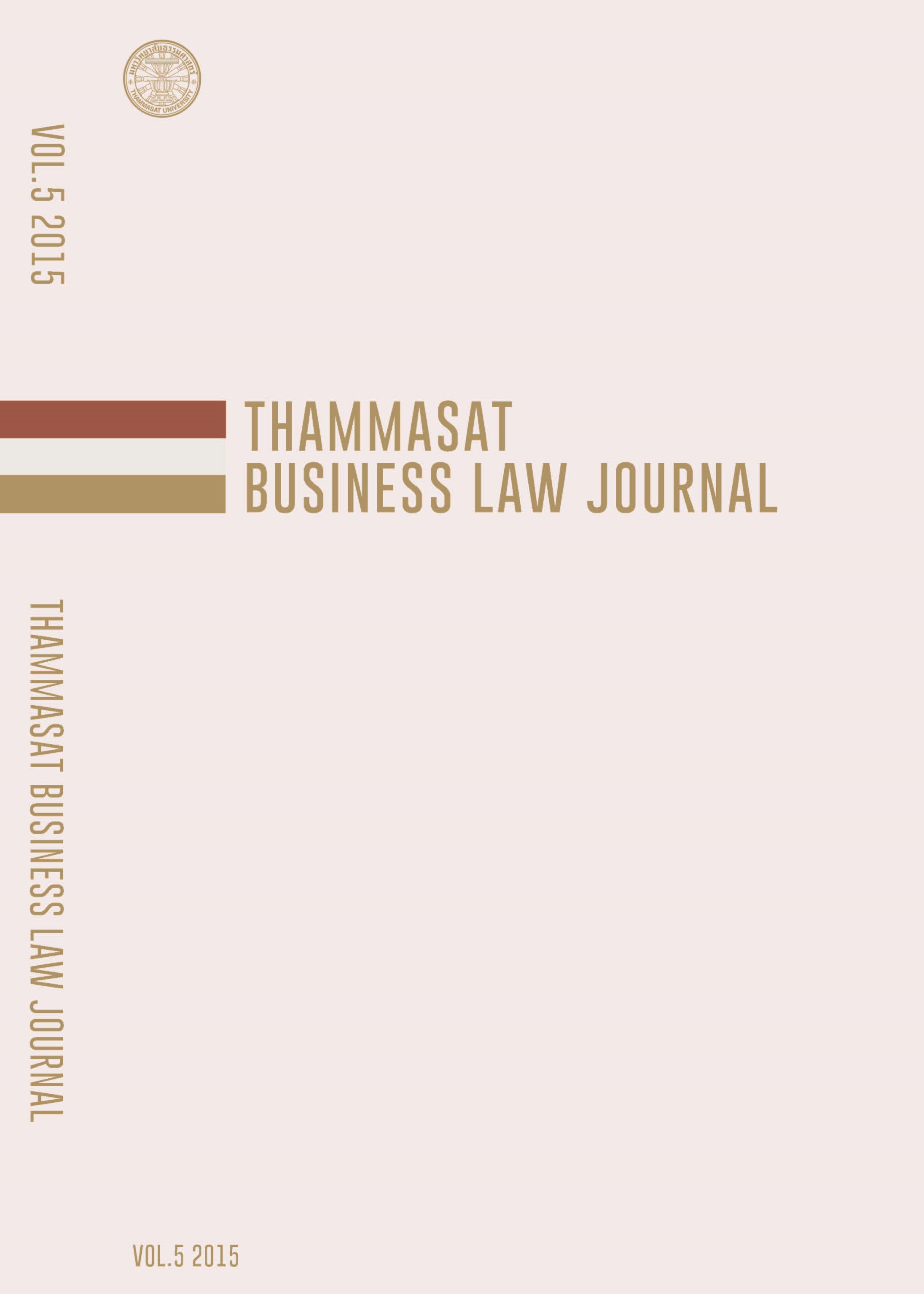LEGAL CONTROL ON COOKIES
Main Article Content
Abstract
Cookies are equipment, used by third parties including website owners and third-party advertisers, collecting and tracking internet users’ personal data and privacy while internet users are surfing on the internet. In this regards, website owners and third-party advertisers use cookies without internet users’ knowledge and consent by installing cookies on internet users’ terminal equipment such as computers, laptops, and mobile phones. Therefore, the aforementioned action of website owners and third-party advertisers shall be deemed as infringement of internet users’ right of privacy and personal data.
In Thailand, website owners and third-party advertisers also use cookies without internet users’ knowledge and consent because while surfing on the internet, there is no any notice of the use of cookies on the sites. Therefore, it shall be deemed that most internet users have no idea of what cookies are, how harm cookies are and what the purposes of cookies are. In this regards, the current Thai law are not sufficient to control the use of cookies since there is no specific law to apply for this matter.
However, the developed states are aware of the infringement of internet users’ privacy and personal data; therefore, they changed several legal provisions to control the use of cookies.
Regarding this matter, this thesis aims to study on the problems of the use of cookies and analyze the current and proposed Thai law whether they are suitable to control the use of cookies. Furthermore, it also provides and analyzes the principles of foreign legislations in accordance with the legal control on the use of cookies in the following states or countries: the European Union, the United Kingdom, Italy, and the United States of America. Then, it will provide recommendation to solve this matter in Thai law.
Article Details
References
Matthew S. Kirsch. “Do-Not-Track: Revising the European Union’s Data Protection Framework to require meaningful consent for behavioral advertising.” 18 Rich. J.L. & Tech. 1. (2011-2012): 41-44.
“Do Not Track.” https://www.ftc.gov/news-events/media-resources/protecting-consumer-privacy/do-not-track (accessed June 21, 2015).
น้ำทิพย์ บุญเกิด. ความรับผิดทางอาญากรณีละเมิดข้อมูลส่วนบุคคล: ศึกษาเฉพาะกรณีข้อมูลส่วนบุคคลที่จัดเก็บในระบบคอมพิวเตอร์. มหาบัณฑิต. นิติศาสตร์ ธรรมศาสตร์. 2548. [Namthip Boonkerd. Criminal Liability for the Transgression of Personal Data: Particularly Study about Personal data which be Kept in the Computer System. Master of Laws8. Faculty of Law. Thammasat.2005]


